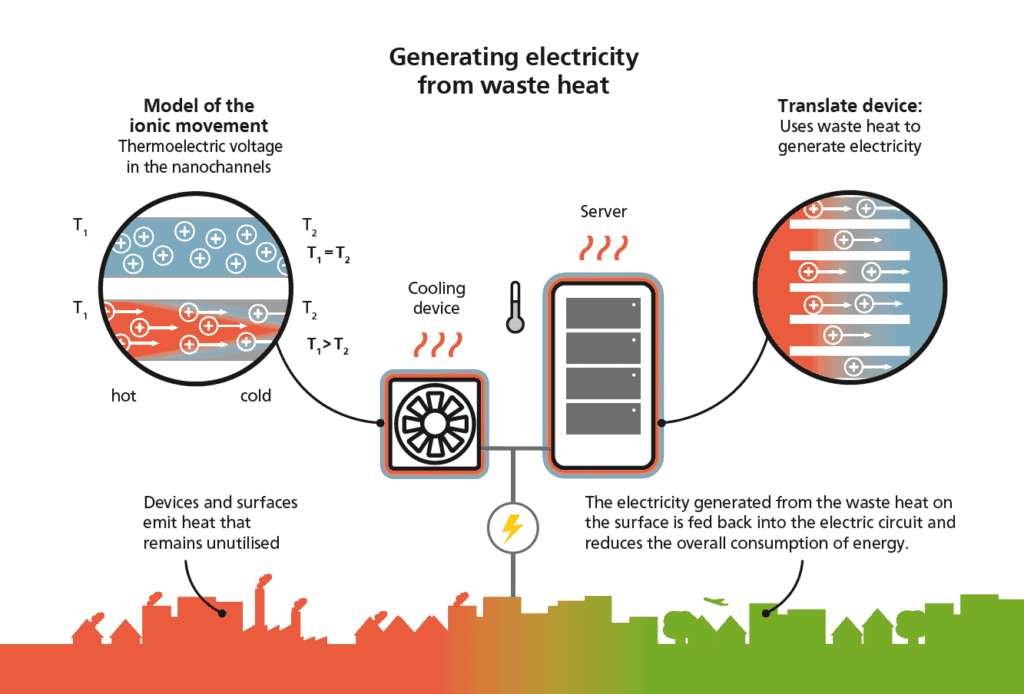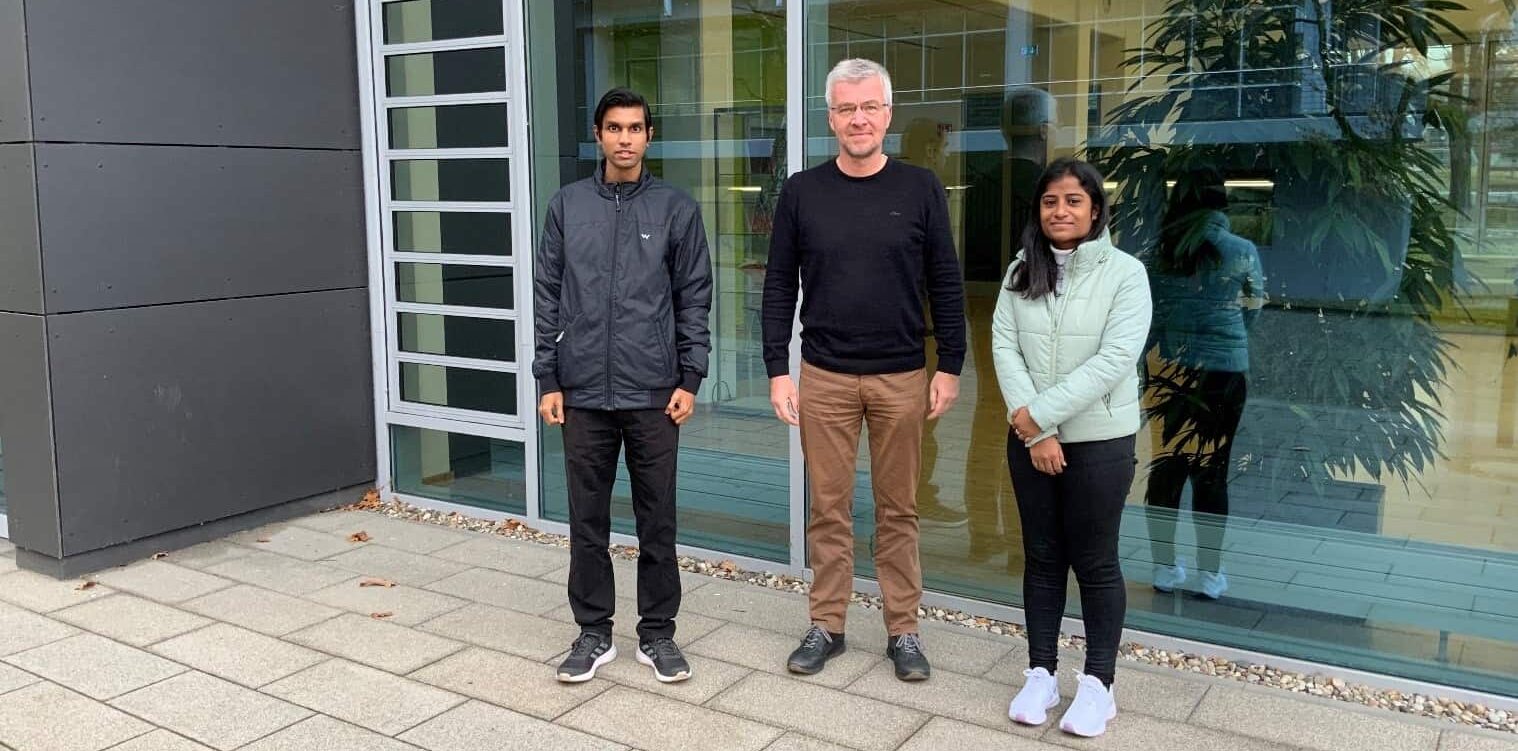The TRANSLATE project is a collaboration between multidisciplinary partners across Europe including University College of Cork (Ireland), Tyndall National Institute (Ireland), TU Darmstadt (Germany), University of Latvia, Cidete (Spain), and UCC Academy (Ireland). In this article, we introduce our partners at TU Darmstadt’s Institute for Nano- and Microfluidics who are responsible for building the simulation model that will allow transport processes in nanochannels under temperature gradients to be investigated.
The Institute for Nano- and Microfluidics (NMF) at TU Darmstadt (TUD) is led by Professor Steffen Hardt. Their research covers a broad range of topics and combines experimental, theoretical, and numerical approaches. The fields of work include gas kinetics on the nanoscale, transport processes in electrolyte solutions and at liquid interfaces, wetting phenomena, and separation processes for biomolecules.
Role in TRANSLATE
For the TRANSLATE project, TUD will utilise their expertise in the modeling and simulation of transport processes in nanopores and nanochannels. A few years ago, TUD discovered that a liquid-filled nanochannel with different temperatures at its two ends creates an electric field.
TUD’s goal is to find out how to maximize the output of electrical energy, that is, which channel designs and liquids should be used to extract the maximum electrical power for a given temperature difference. To this end, TUD will use computer simulations to solve the differential equations describing the transport of heat, mass, and ionic species.

TUD’s team members include:
Dr. Satarupa Dutta
Dr. Dutta obtained a Bachelor of Engineering Degree in Chemical Engineering from Assam Engineering College in 2013. She subsequently obtained a M.Tech. degree in Chemical Engineering from the Indian Institute of Technology Guwahati in 2015, where she worked in the field of biosensors for clinical diagnostics. Following that she obtained a Ph.D. in Chemical Engineering in 2021 from IIT Guwahati. Her research interests are both in fundamental and application-based fluid mechanical studies. She has focused her research on external field-driven microfluidic phenomena to enable a variety of future applications.
Dr. Rajkumar Sarma
Dr. Sarma graduated with a degree in mechanical engineering from Tezpur University and obtained his Ph.D. in fluid dynamics from the Indian Institute of Technology Guwahati in 2021. He then moved to Germany and is presently involved in the TRANSLATE project as a post-doctoral researcher in the Institute for Nano- and Microfluidics at TU Darmstadt. He has broad research experience in the area of theoretical fluid dynamics, including electrokinetics and thin-film dynamics.
Prof. Dr. Steffen Hardt
Professor Hardt studied physics at the University of Giessen and the University of Washington/Seattle and obtained his Ph.D. in theoretical physics in 1996. Subsequently, he shifted his focus to microtechnology and microfluidics and performed R&D work in an industrial context for a number of years. In 2006 he obtained a full professorship in nano- and micro process technology at the University of Hannover. Since 2009 he has been the head of the Institute for Nano- and Microfluidics at TU Darmstadt. The main focus of his research is on fundamental transport phenomena in fluids on small scales, with the goal to pave the way for novel applications.

